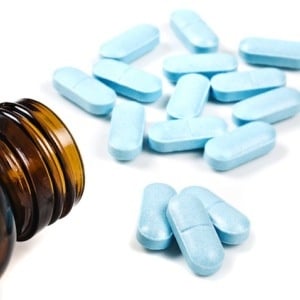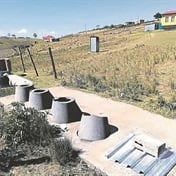
Are you HIV negative but in a relationship with an HIV-positive individual, and thus at a high risk of contracting HIV? If your answer is yes, you will be glad to know you can significantly reduce your chances of contracting HIV by taking the antiretroviral (ARV) drug Truvada.
It comes as a single tablet containing two highly active ARV drugs, Tenofovir and Emtricitabine. When taken every day, it reduces the risk of HIV infection in people who are at high risk by more than 90%.
The drug was registered as a pre-exposure prophylaxis (PrEP) – anti-HIV medication that keeps HIV-negative people from becoming infected – in South Africa in November.
This week, president of the Southern African HIV Clinicians Society Dr Francesca Conradie said that accredited private general practitioners would soon prescribe Truvada to those who needed it.
A person can now go to a doctor and request a PrEP. The doctor will conduct a risk-benefit test to determine eligibility. This includes assessing kidney function and the risk of HIV infection, as well as counselling and testing for HIV, before prescribing Truvada.
For those who are worried that medical schemes may have access to confidential information about their sex lives following a request for PrEP, Conradie was quick to allay these fears.
“Medical schemes will not know your reasons for requiring Truvada, but rather that you need it because you want to protect yourself,” she said.
Truvada is recommended for HIV-negative people at high risk of acquiring HIV infection. These include those who are HIV negative but have HIV-positive sexual partners; those who have multiple sexual partners; those who have a history of inconsistent or no condom use; sex workers; and people who have a history of unprotected sex while under the influence of alcohol or recreational drugs.
It is not clear yet how medical aid schemes will cover Truvada, which costs R550 a bottle for 30 pills: either it will be paid out from members’ day-to-day funds or be covered under chronic medication in the HIV programme.
Stavros Nicolaou, a senior executive at Aspen Pharmacare – the manufacturers of Truvada – urged medical schemes to fund the drug: “It will not only materially improve the mortality and morbidity rates of our country, but will also provide long-term healthcare cost savings,” he said, adding that Aspen would reduce the price from R550 to R480.
While Truvada may offer hope to many people who are at a high risk of contracting HIV, Conradie told City Press that it was not “a magic bullet” and “neither does it replace other prevention methods, including condoms and medical male circumcision”.
“The public should be clear that PrEP is an additional HIV prevention method aimed at people with a high risk of HIV infection. If anybody, including teenagers, feels they are at a high risk of contracting HIV, they should be given this drug after being tested and properly counselled about its use and after being given more information about other prevention methods,” said Conradie.
She added that prevention was one way of ensuring an HIV-free generation in South Africa.
An estimated 6.4 million people are currently living with HIV in South Africa. Women bear the brunt of the epidemic, with young women (aged 15 to 24) estimated to be eight times more at risk of contracting HIV than their male counterparts.
Conradie said that people who decided to take Truvada as a short-term measure should not be at risk of developing resistance to ARV drugs in future.
ARV drug resistance is common in HIV-positive people who interrupt HIV treatment. However, with PrEP, Conradie said, “there is no risk – provided that the person remains HIV negative while taking it, because the drug is flushed out of the system 48 hours after being taken”.
WHO SHOULD GET PrEP?
. People with HIV-positive sexual partners who are not confirmed as being virologically suppressed.
. Any person with a partner whose HIV status is unknown.
. People who have multiple sexual partners.
. Commercial sex workers.
. Recurrent PEP (post-exposure prophylaxis) users.
. People recently diagnosed with a sexually transmitted disease.
. Those with a history of inconsistent or no condom use.
. Those with a history of unprotected sex while under the influence of alcohol or recreational drugs.
. Any sexually active HIV-negative men who have sex with men or a transgender person.




 Publications
Publications
 Partners
Partners








